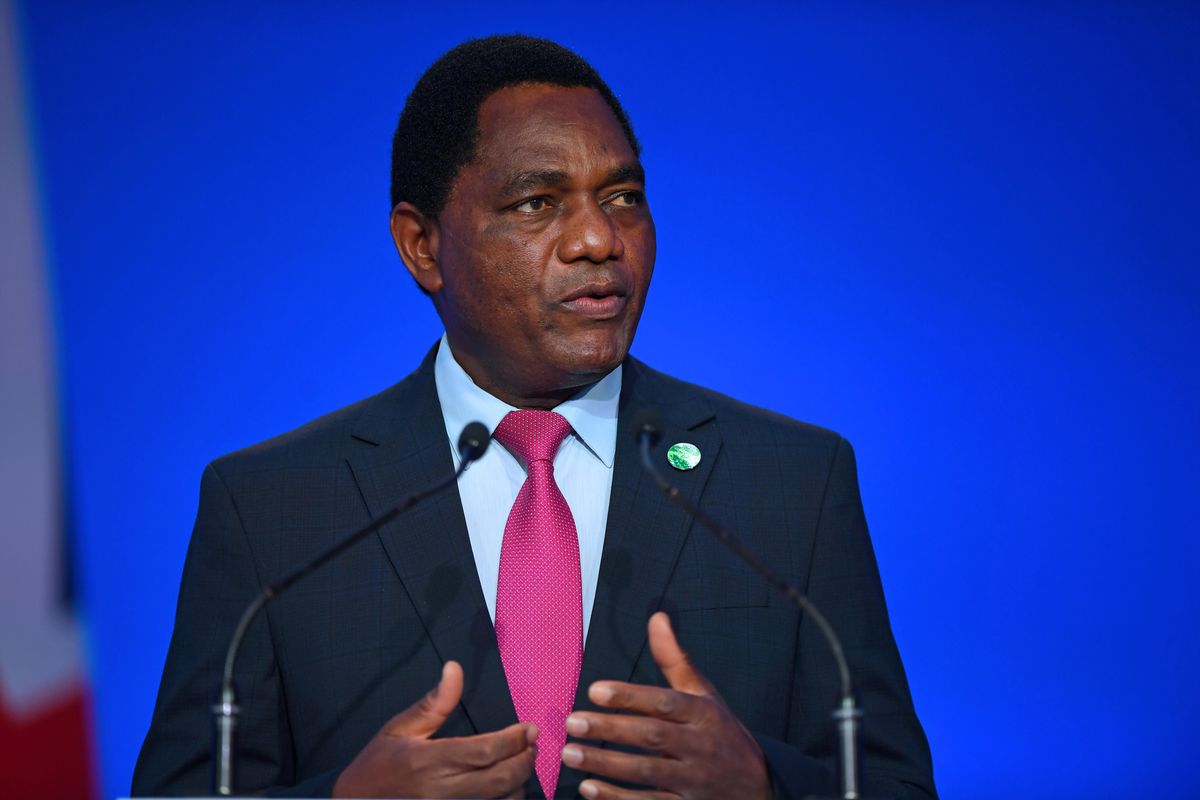A harrowing debt default, cinema-worthy corruption cases, and a controversial attempt to change the constitution all provided the backdrop for Hichilema Hakainde’s election as Zambia’s president earlier this year. Despite attempts by incumbent president Edgar Lungu to rig the vote, Hichilema won a landslide victory by promising to boost jobs and crush corruption. But does Hichilema, a businessman-turned-politician, have what it takes to fix the faltering fortunes of Africa’s second-largest copper producer, a country that was once one of the continent’s fastest growing economies?
We sat down with Eurasia Group analyst Connor Vasey to find out how things have gone during the new president’s first few months in office.
Who is Hichilema?
The self-described “cattle boy” grew up tending to his family’s livestock, won a scholarship to study at university, and then went on to have a successful career in business. He served as the head of the local units of multinational accounting firms Grant Thornton and Coopers & Lybrand and currently owns interests in some of the country’s largest ranches, beef suppliers, and tourism firms. Hichilema later turned his hand to politics and became the leader of the United Party for National Development (UPND) in 2006. Yet a lack of political experience, and his aloof demeanor, worked against him both in the party and with the public, and he failed in his first five attempts to win the presidency.
So, how did he win this time?
A slow process of alliance building and developing his political savvy helped Hichilema transform the UPND from a regional party from the south into a competitive player on the national stage. Following a particularly narrow loss by Hichilema in the 2016 presidential election, authorities arrested him on dubious charges of treason after his motorcade failed to give way to Lungu’s. He was jailed for four months, but the experience gave him the air of a political martyr, which he put to good use on the 2021 campaign trail. But many Zambians were already ready to support him, after six years of a Lungu government that had presided over slowing economic growth, massive kickback schemes, defaults, and growing authoritarianism. An attempt to amend the constitution to give more power to Lungu's party and family failed – but only narrowly.
What are the biggest challenges the new president faces?
The country’s economy was already dragged down by low international prices for copper and other commodities when the government began defaulting on its debts to foreign creditors last year. This took the country’s currency from K8/$1 when Lungu entered office to K22.6/$1 when he left it. Combined with the fallout of the pandemic, the economy shrunk by 2.8% in 2020.
So Hichilema must now walk a tightrope between creating an economic plan that reassures creditors – by cutting back on ‘unnecessary expenditures’ like popular fertilizer and power subsidies – but does not strain the goodwill of the voters who elected him. Unfortunately, his aloof demeanor has come to the fore once again and many Zambians lament the lack of communication from their president on the country’s direction. Many of his reforms will take time to bear fruit in the form of increased investment and business confidence that can improve standards of living in the country. Yet Hichilema faces the challenge of high expectations. He was elected on a platform of change and Zambians are hoping for a quick reversal of their economic fortunes.
What has he done so far?
Given his lack of experience in government, Hichilema has primarily been focused on understanding the scope of the problems he faces and on dismantling the patronage networks put in place by the former ruling Patriotic Front. Still, his appointment of respected economist Situmbeko Musokotwane as finance minister and steps taken to unblock talks with the IMF on a lending program and with international creditors on a debt restructuring program have helped to stabilize the country’s currency. He has also taken steps to improve relations with members of the business community who were alienated by the corruption and unpredictable policy making of the Lungu years, including the companies that operate the country’s all-important copper mines.
What are Zambians saying?
Efforts by the new president to appoint more women and representatives of different regions to important positions have won praise following the preference given to people from the North and East under Lungu. But grumbling has already started about a perceived lack of progress on Hichilema’s two most important campaign pledges of reviving the economy and putting an end to corruption.
In contrast to the hyperactive style of the previous administration, the new president has attempted to bring a slower, more deliberative approach to governance and decision-making. Though the president remains popular, he should keep in mind that many of his supporters in the last election embraced him more because of their disgruntlement with his predecessor. Zambia is a country known for closely fought democratic transitions – if Hichilema loses the country’s support he could be on the raw end of that arrangement in 2026.
Connor Vasey is an Africa analyst at Eurasia Group.






